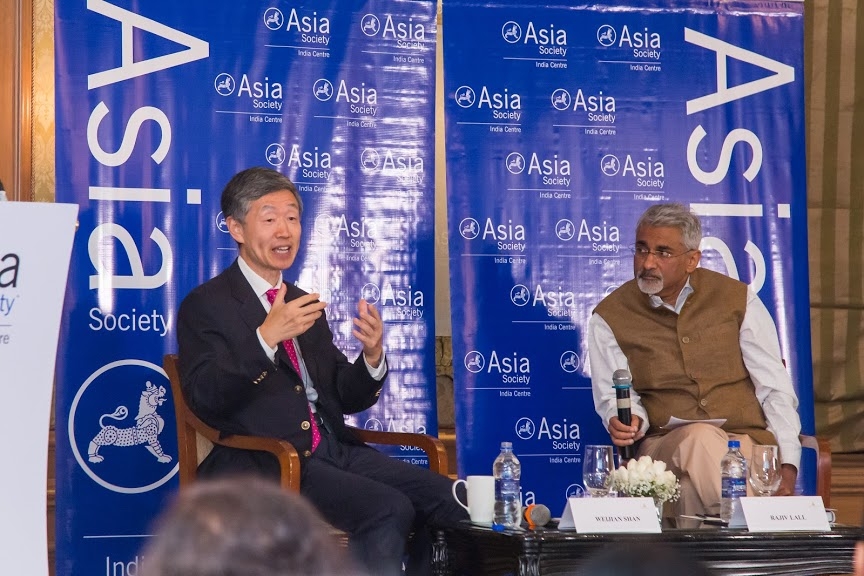Out of the Gobi: A Journey Against All Odds

Weijian Shan and Dr. Rajiv Lall
Mumbai: On 2st January 2020, Asia Society India Centre hosted Weijian Shan, Chairman and CEO, PAG Group and Dr. Rajiv Lall, Chairman, IDFC First Bank. The discussion was centered around Shan’s journey from being a farmer in China’s Gobi desert to one of the most successful investors in the world, as chronicled in his new book, ‘Out of the Gobi’.
Shan began by describing his story as an elementary school student at the time of the Cultural Revolution, which was declared by the then Chairman Mao Zedong. He recounted his experiences doing back-breaking manual labour in the Gobi desert, and his eventual journey to America to pursue his education under former Federal Reserve chair, Janet Yellen.
Dr. Lall commenced the discussion by asking Shan about the suppression of emotion as a bourgeoisie concept among the Chinese, to which he replied that many people in China have suffered for speaking the truth and expressing themselves. He referred to Fukuyama’s concept of trust in societies while explaining that during and after the revolution, there was very little trust as people feared to speak the truth. Shan then narrated an incident from his own life when he was initially denied the opportunity to go to America to study. He could not be vocal about his disappointment and instead had to display gratitude and enthusiasm for being able to serve the Chinese cause.
Dr. Lall then enquired about the psychology of people around him, and if a robust propaganda machine influenced their behavior. According to Shan, Mao believed that power eventually corrupts everyone regardless of class. His belief in the ideals of Marxism and the abolition of class swayed a majority of the young population, who carried out acts of brutality convinced they were doing the right thing.
An entire generation of Chinese youth was denied secondary education, but despite that, they ascended to influential positions in China’s bureaucracy at the end of the Revolution, thus helping to propel its village industry to global heights. Dr. Lall asked Shan what lessons India could learn from China’s rise, to which he responded that to achieve economic growth, people need to be emancipated and given the means to prosper. He added that India needs to decentralize further and invest heavily in infrastructure.
This was followed by an audience QnA session which included pertinent topics like Chinese President Xi Jinping’s anti-corruption campaign, the perception of Mao and the Cultural Revolution in modern-day China, and productivity in both countries.
As reported by Aatreya Bhat, Programme Intern, Business and Policy, Asia Society India Centre.
